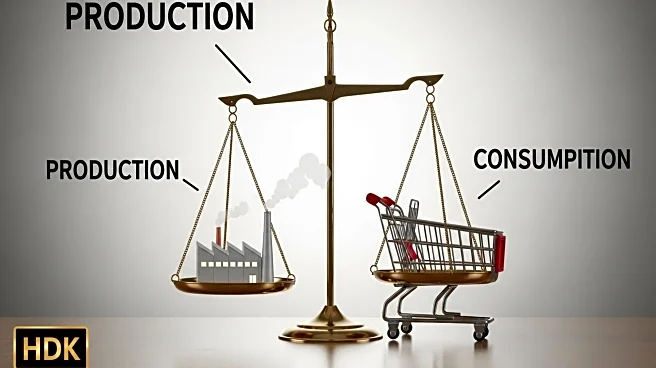What's Happening?
Carl Zulauf, professor emeritus at The Ohio State University, recently discussed the complexities of tariffs and their effects on production and consumption in the U.S. economy. In a presentation to farmers and agribusiness owners, Zulauf explained that tariffs act as a tax, raising the price of goods and potentially encouraging domestic production. However, he questioned whether a proposed 15% tariff is sufficient to stimulate American businesses to produce goods domestically. Zulauf emphasized the importance of economic incentives and the challenges of analyzing the current market environment, which is influenced by multiple changing variables.
Why It's Important?
Tariffs have a profound impact on the U.S. economy, affecting both producers and consumers. While they can encourage domestic production, they also increase costs for consumers, particularly those with lower incomes. The debate over tariffs involves weighing the benefits of increased American production against the potential inefficiencies and consumer costs. Understanding these dynamics is crucial for policymakers and businesses as they navigate trade agreements and economic strategies. The discussion also highlights the broader implications for the manufacturing sector, which may require special policy considerations similar to those in agriculture.










